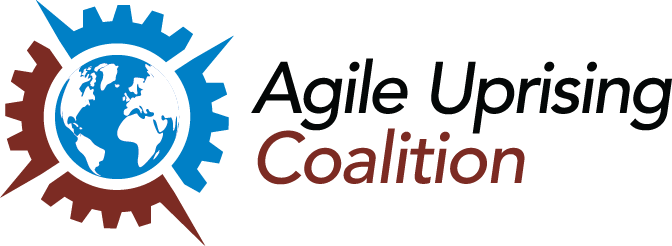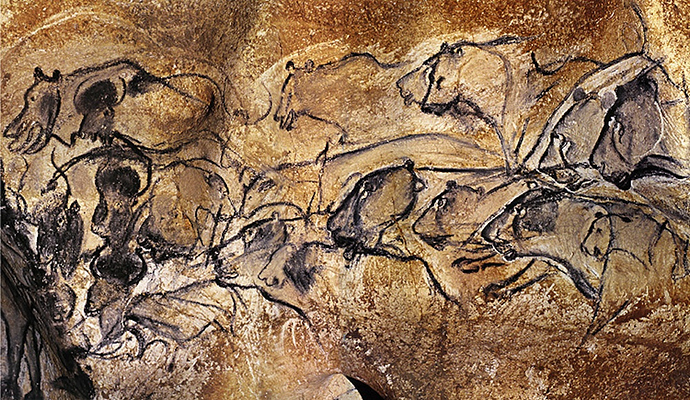Originally published at: http://www.agileuprising.com/leadership-from-the-bottom/
I am a developer I am not the engine that moves the machine. I am a small cog in the system. I am important, but often unseen. I can be damaged and still function, but everything functions a little worse. I am never alone. I am not loud and my voice doesn’t carry far,…
Leadership from the bottom
This is a little outside of my normal style. I admit I’ve been a little stuck since getting back from Christmas vacation. I’ve started four posts, that are still works in progress.
Something @Bogdan_Onaca mentioned in his frustrations was that we talk mindset, but not how hard it can be on the ground. It really resonated with me.
The continuing discussion with @Jen and @andycleff just got me thinking further. I am not a person in a position that I move an organisation, I’m right at the other end of the spectrum. The post above is kind of what flowed out.
As developers, scrum masters, and agilists we often can’t “shift the behemoth”, but we can nudge the needle just a little. If enough nudges happen, perhaps we see that mythical beast we all call meaningful change occur. I can’t change the world, but I can affect one person.
Maybe that is enough.
I too struggle with similar things.
I am pondering the power of exponentials…
I can’t change the world, but I can affect one person.
What if we can affect two people…
… and they two other people?!
Lois Kelly and @Jen during recent podcast recording (Release 2018-02-25 12:00 PM) mentioned building alliances (along with courage, resilience, and vulnerability)
Some notes:
- The Support Pack: a process focused group, best at figuring out “how we get this thru.”
- The Wild Pack: brave and crazy thinkers, less concerned about how to get buy in, and more about making the ideas amazing
- The Caring Pack: tend to our souls
Brad, you’ve been helping me on my tome: The Curse of Organizational Silence.
and I think this is all connected…
I am not a person in a position that I move an organisation
What if that becomes:
“I am not a person in a position that I move an organisation, yet”
More from me later on this…
But quickly:
Meg Wheatley: Never underestimate the power of a small group of committed people to change the world. In fact, it is the only thing that ever has.
Lois and I work together in the Change Agents World Wide group – here are two posts from fellow members that come immediately to mind.
Within change there are multiple necessary roles - change leader, change manager, change agent and change enablers. You just can’t have change without a combination of all. Thank you for nudging. That is enabling.
That was really what I was hitting with this little line.
I was seeing 1 person join me and that growing to 2, then 3 and 4. Very much that we have exponential impact. That mountain does move, but we start always start with the first shovel and then multiply the effect.
I think you are right that:
This is a wonderful thought.
I agree, and it starts with 1 soul.
@Jen Thank you for the articles. They really speak to the soul. I love the little acts of courage list. Some of my personal favourites include:
- presenting ourselves openly, honestly and without gloss
- pointing out a difficult, hard or inconvenient truth
- sharing hidden or suppressed stories
- listening when the conversation makes you uncomfortable
- exposing our vulnerability
- managing tension towards a productive outcome
- challenging the prevailing culture
These can be deeply uncomfortable, but carry so much power. For others, this isn’t the complete list, merely a highlight that I love.
Thank you both. I appreciate deeply the humanity and compassion you bring with you to the discussion.
Two more from @Jen’s recommendations that really back up @andycleff’s words.
- listen to the hidden stories
- help others to tell their stories
Hell, yeah!
Ah, the power of a good story…
Ever since the dawn of our species, we’ve told stories.
We’ve sung them, told them around campfires, painted them on cave walls, drew them on clay pots and canvases, woven them in tapestries and carved them into stone. Eventually, we wrote them down.
Today, we share stories via sticky notes, podcasts, town halls, planning meetings, retros and daily scrums.
Science indicates that our brains become more active, more engaged when we hear or tell a narrative. Could it be that as a species we are hardwired for a good yarn?
And let’s not forget songlines / dreaming tracks. (Perhaps there’s a retrospective exercise tucked away in there somewhere …)
Ok, I’m back…
Blockquote I am not a person in a position that I move an organisation, I’m right at the other end of the spectrum.
I’m not so sure that’s the case. The other end of the spectrum are those that are stagnant, disengaged, have no interest in their organisation. There are so many polarities and tensions in meaningful change eg you can’t have leaders without followers, you need stability to embed change, you need to slow down to go faster. So exponentialism becomes a critical driver in making change happen. It is the ONLY way to get change across the polarities and tension without it being a forced dictatorial change (which we know from neuroscience perspective is never long lasting). I love your poem, I really do. It speaks to the roles we all play. It speaks to the energy of change. The lived experiences.
Here’s the interesting thing for me – once upon a time when I would end up in contracts where I didn’t have senior influence and a lot of the change going on around me would not be my design I used to reason “as long as I can have a positive influence on what change is and how it should be on one person then I’m in the right place at the right time” - because… exponential…
What I’ve now come to understand is that’s a cop out (for me). I have a unique and rare skillset with regards to designing and implementing change and coaching leaders. It is irresponsible for me to stay in organisations where I am not working at that level.
I share this because I think some of the working through the “I’m not a person in a position that moves an organisation yet” gets to the core of purpose. What are you here to do. Are you here to move organisations? Are you here to facilitate brilliant technical products that make life easier for others? Are you here to enhance the life others through meaningful organisational change? Getting clear on purpose allows you to settle on what role you play in change - leader, activist, agent, enabler or even blocker.
Anyhoo. Thanks Brad, good to be thinking and getting feisty on a Thursday 

